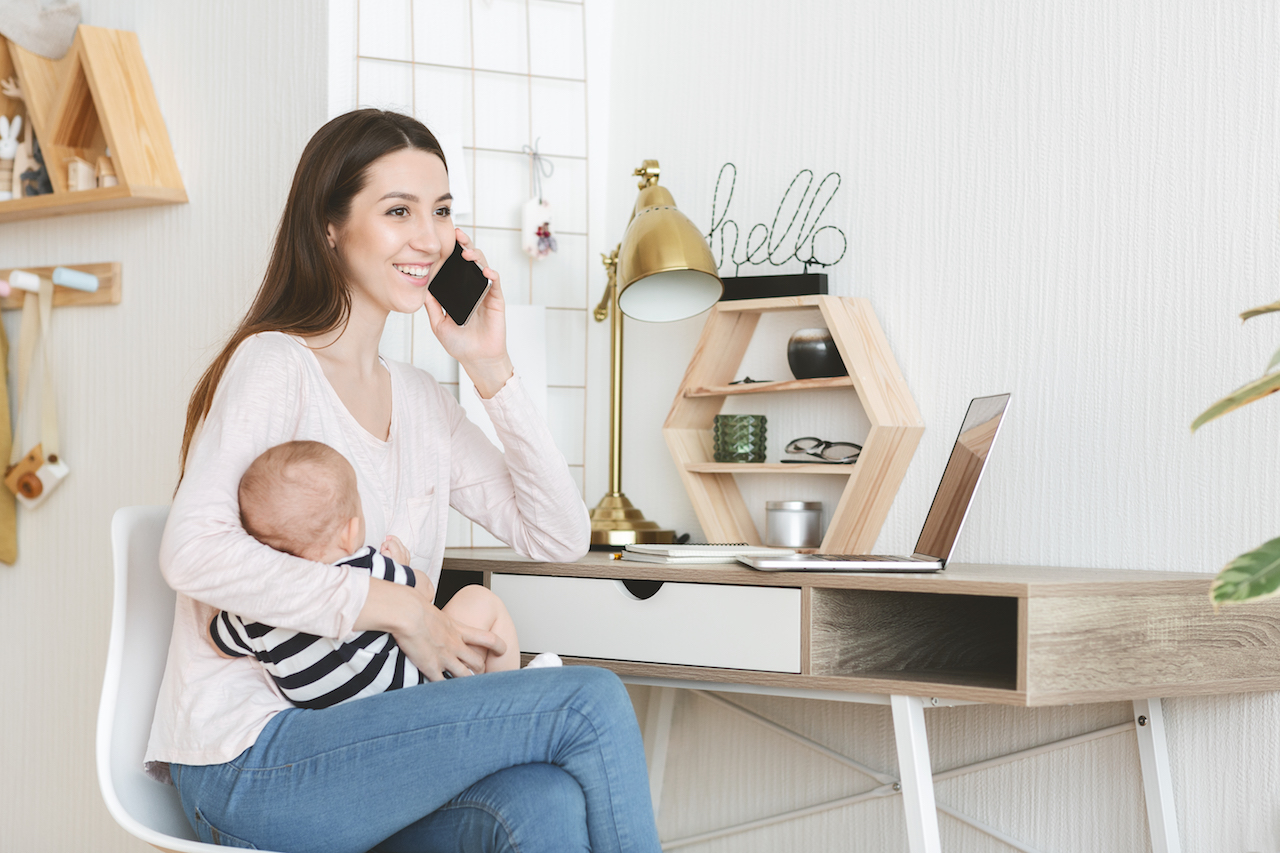Can you get maternity leave and maternity pay if you’re a self-employed freelancer or contractor?
In this post we’ll explore your options if you’re a self-employed new parent. Of course, these options are also open to small business owners!
Do You Get Maternity Pay If You’re Self Employed?
Most employees get statutory maternity leave and statutory maternity pay. The problem is that the new parents’ employers are responsible for providing this statutory pay. Don’t worry. If you don’t qualify for statutory maternity pay, you can apply for the government’s maternity allowance.

Am I Eligible for Maternity Allowance?
You’re eligible for maternity allowance if:
- You’re self-employed.
- You’re employed, but cannot get Statutory Maternity Pay. This could include small business owners. Though if you run a small business, you may still be eligible for statutory maternity pay. Head here to learn more.
- You’ve recently stopped working.
There are some other criteria to meet. In the 66 weeks before your baby’s due, you must also have been:
- Self-employed, or in full or part-time employment, for at least 26 weeks.
- Earning £30 a week or more in at least 13 weeks. These weeks do not have to be together. It doesn’t matter if you’ve had periods of unemployment, or a number of different jobs. You may also be eligible even if you’ve been “on furlough” during this period.
- If you are self-employed, you must have made Class 2 National Insurance contributions for at least 13 of the 66 weeks before your due date. You can read our complete guide to National Insurance for self-employed people here. But don’t worry if you’ve not made enough payments. You can still get maternity allowance, but just a lower amount. See below for more details.
You can learn more about the eligibility rules – including what to do if your circumstances change.
How Long Do You Get Maternity Pay When Self-Employed?
You can claim the government’s maternity allowance from your 26th week of pregnancy. You can start receiving your pay from 11 weeks before your baby’s due.
You can claim maternity allowance for up to 39 weeks.
How much do you get? It depends on your eligibility. You can use the government’s online calculator to work out how much you’d get.
But it could be:
- £151.97 a week, or 90% of your average weekly earnings (whichever is lower), for 39 weeks.
- £27 a week for 29 weeks.
- £27 a week for 14 weeks.
The government will pay your maternity allowance directly into your bank account either every two weeks, or every four weeks.
How to Claim Self-Employed Maternity Allowance
To claim maternity allowance, you need to complete an MA1 maternity allowance claim form. You can do this online, or you can order a physical form if you prefer.
To get started, and for a complete guide to the information you’ll need to gather before you begin, here’s the MA1 Online Form.
Can I Work as Self-Employed While on Maternity Leave?
Generally speaking, doing any work while on maternity leave or while receiving maternity pay will invalidate whatever arrangement you have. However, there are some circumstances where you can work while on maternity leave.
If you’re an employee and you’re eligible for statutory maternity pay (or the equivalent adoption pay or shared parental pay), then you can undertake self-employed work without it affecting your statutory rights.
However, you should not risk working for your usual employer on a self-employed basis, as this could invalidate your eligibility. Also remember that, while receiving statutory maternity pay, you’ll still be bound by your employment contract. Don’t do anything that breaches this contract, or you could lose your job!
If you’re self-employed and receiving maternity allowance, then you can only work up to 10 days before it invalidates your claim. These are Keeping in Touch days, to allow you to touch base with important clients or check in with your business to ensure everything’s running smoothly.
For more information about how maternity leave and maternity pay affects self-employed work, contact your local Job Centre.
Extra Support for Self-Employed Workers
The self-employed life can often be challenging. When you work as your own boss, you get a lot of freedom. But it also means you have to take care of almost everything. So it’s good to know that help’s available if you need it.
The government’s maternity allowance will cover you for one of life’s biggest events. But what about the many other things that could happen to you over the course of your professional life?
Life’s full of uncertainties, and running a business is inherently risky. If you’re self-employed, it can often feel like you’re facing that risk alone. But it doesn’t have to be that way. Insurance can offer an essential safety net – a firm guarantee that you’ll have all the support you need, no matter what happens.
We offer specialist insurance policies for freelancers and contractors. We can cover you for many of the additional risks that freelancers and contractors face from as little as 35p a day.
If you have any questions or would like to discuss your options please contact the Tapoly team at info@tapoly.com. You can also call our help line on +44(0)207 846 0108, or try our chat on our website.

